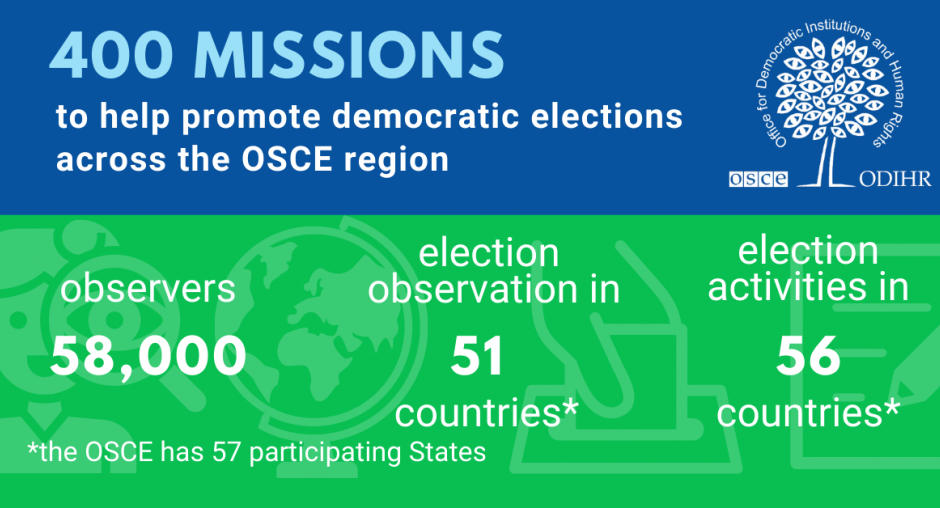OSCE’s human rights office marks 400th election observation on International Day of Democracy

WARSAW, 15 September 2021 – Elections are a central element of the democratic process and on this year’s International Day of Democracy, the OSCE Office for Democratic Institutions and Human Rights (ODIHR) marks its 400th election observation, a key area of its work to help strengthen democracies across the 57 countries of the OSCE region.
“Today’s International Day of Democracy is the perfect date to celebrate ODIHR’s 400th election observation mission,” said ODIHR Director Matteo Mecacci. “We are proud of this achievement, particularly as we look back on 30 years of ODIHR. We look forward to continuing our support to countries across the OSCE region in improving their election processes, in the knowledge that genuinely democratic elections are lived participation for all citizens. In this way, we are contributing to building better and more transparent and tolerant societies.”
Today ODIHR opens its election observation mission to the presidential election in Uzbekistan, which will take place on 24 October. Through the engagement of countries throughout the OSCE region and their determination to contribute to stronger democracies, ODIHR has been able to deploy more than 5,000 long-term observers and almost 53,000 short-term observers to election missions across the OSCE region since 1996.
All countries of the OSCE have recognised the important role of democratic elections in ensuring long-term security and stability throughout the region. Democratic elections are celebrations of the fundamental human rights and freedoms of all voters, whether they are men or women, people with disabilities, or have a minority background. ODIHR’s election observation helps to protect those rights.
ODIHR’s election observation is about far more than election day itself, taking into account the pre-election environment and all it entails, as well as post-election events. It is not a one-off activity, but rather emphasises the importance of long-term engagement with countries across the OSCE to assist them in improving their election processes for the benefit of all citizens. All OSCE countries have recognised that “the will of the people, freely and fairly expressed through periodic and genuine elections, is the basis of the authority and legitimacy of all government”.
